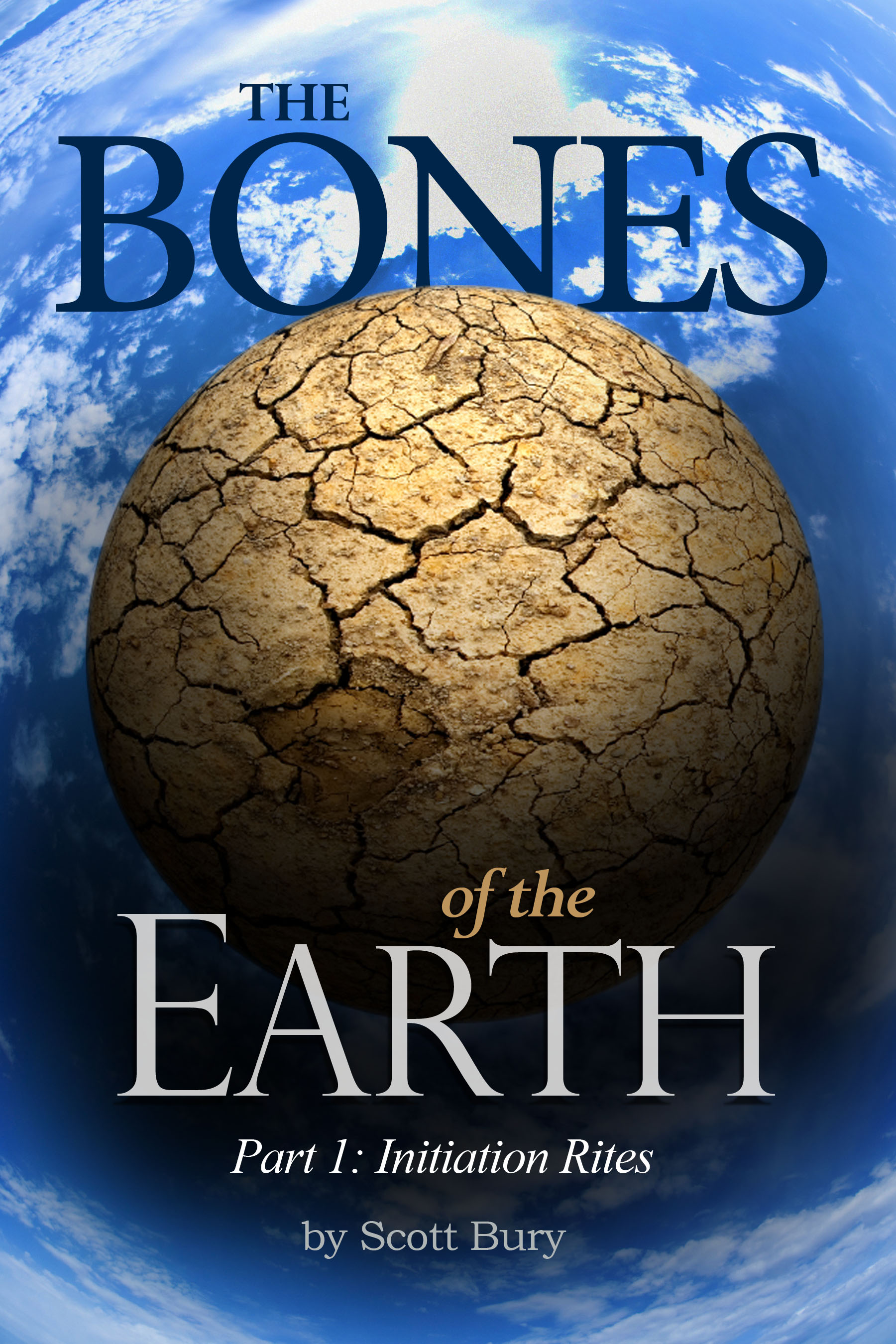I thought I might as well make a formal announcement:
The full text of The Bones of the Earth, all three parts, is now available in e-book form from Smashwords and Amazon.
For those who have already downloaded Part 1: Initiation Rites, I will give you a coupon for a reduction in the cost of the full version equal to the cost of the part you've already bought.
I'm very happy and excited about this! I must thank, again, my cover designer, Lisa Damerst, and my editors, Roxanne Bury and Will Grainger, for outstanding efforts.
What is it all about?
I wrote The Bones of the Earth because I wanted to read an epic fantasy that did not reiterate all the stereotypes and tropes of the fantasy genre that I kept finding on the shelves in my local bookstore: typically, they start with a crude map of an imaginary land, a map that is so simplistic that it's obvious the artist never looked at a real map. Inside, two-dimensional characters have names that sound vaguely Celtic or Saxon. Place names betray that the authors were looking for short cuts to become the next Tolkein.
I decided to write a story that satisfied what I was looking for, something that's not found in most books. The setting is a place you won't find in any other story: eastern Europe in the darkest part of the Dark Age. I deliberately avoided romanticizing it. Life was miserable for most people.
Setting the story in a real place also saves me the work that took Tolkein so many years. I did not have to invent languages or history. I spent a lot of time in research, yes, but the result is that all the names of people, places and mythical monsters come from authentic sources. Yes, "Javor" is a real Slavic name, meaning "maple tree." Elli, Grat, Vorona (raven), Valgus, Photius—these are all names that real people had 1,500 years ago.
I have also made an effort to incorporate many ancient myths and legends from various cultures that would have had some influence on the people of the setting and time.
All that to say, please take a look at the book. You can take a fairly long peek at Amazon's version—it allows a free sample of about 20 percent of the text, which is about 80 pages. Also, I have a free e-pub version of about the same extent at the tab at the top of this page.
I invite any comments, as well. Let me know what you think of the story, style or approach. And let me know if you figure out what the bones of the earth are before you get to the end of Part 2.
Happy holidays!
The full text of The Bones of the Earth, all three parts, is now available in e-book form from Smashwords and Amazon.
For those who have already downloaded Part 1: Initiation Rites, I will give you a coupon for a reduction in the cost of the full version equal to the cost of the part you've already bought.
I'm very happy and excited about this! I must thank, again, my cover designer, Lisa Damerst, and my editors, Roxanne Bury and Will Grainger, for outstanding efforts.
What is it all about?
I wrote The Bones of the Earth because I wanted to read an epic fantasy that did not reiterate all the stereotypes and tropes of the fantasy genre that I kept finding on the shelves in my local bookstore: typically, they start with a crude map of an imaginary land, a map that is so simplistic that it's obvious the artist never looked at a real map. Inside, two-dimensional characters have names that sound vaguely Celtic or Saxon. Place names betray that the authors were looking for short cuts to become the next Tolkein.
I decided to write a story that satisfied what I was looking for, something that's not found in most books. The setting is a place you won't find in any other story: eastern Europe in the darkest part of the Dark Age. I deliberately avoided romanticizing it. Life was miserable for most people.
Setting the story in a real place also saves me the work that took Tolkein so many years. I did not have to invent languages or history. I spent a lot of time in research, yes, but the result is that all the names of people, places and mythical monsters come from authentic sources. Yes, "Javor" is a real Slavic name, meaning "maple tree." Elli, Grat, Vorona (raven), Valgus, Photius—these are all names that real people had 1,500 years ago.
I have also made an effort to incorporate many ancient myths and legends from various cultures that would have had some influence on the people of the setting and time.
All that to say, please take a look at the book. You can take a fairly long peek at Amazon's version—it allows a free sample of about 20 percent of the text, which is about 80 pages. Also, I have a free e-pub version of about the same extent at the tab at the top of this page.
I invite any comments, as well. Let me know what you think of the story, style or approach. And let me know if you figure out what the bones of the earth are before you get to the end of Part 2.
Happy holidays!














